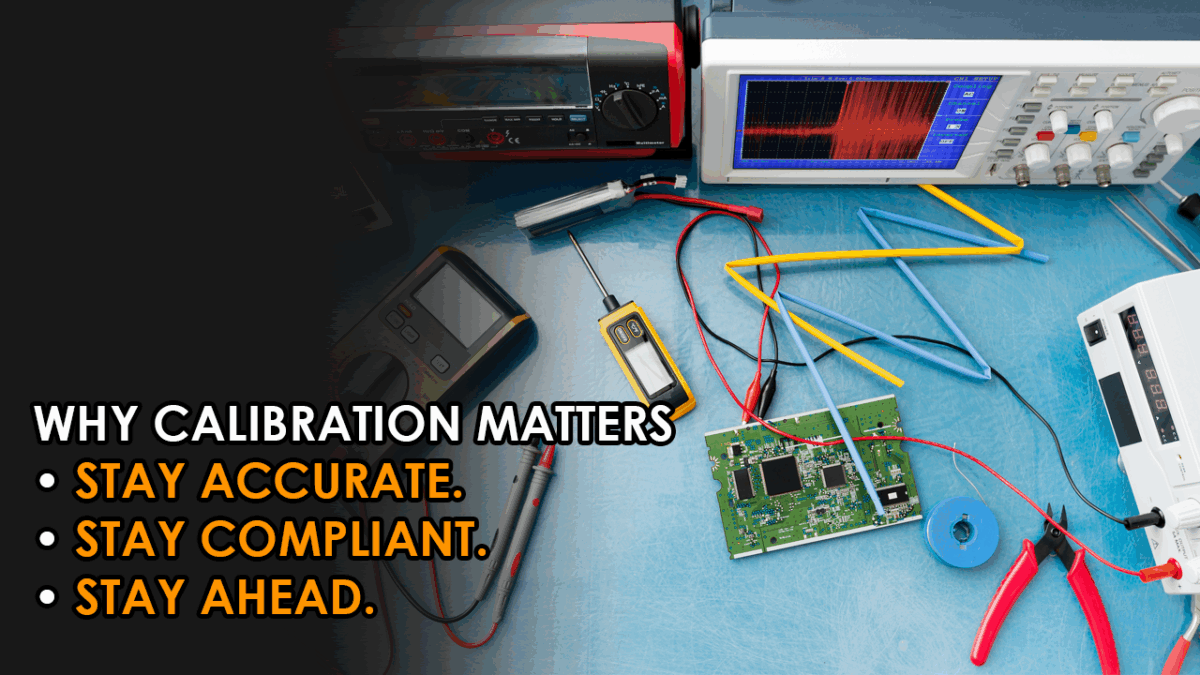Blog
Why Calibration Matters: Ensuring Accuracy and Compliance in Testing Labs
Why Calibration Matters: Ensuring Accuracy and Compliance in Testing Labs
In material testing laboratories, accuracy isn’t just a preference, it’s a necessity. Whether you’re testing concrete strength, analyzing soil composition, or assessing the durability of asphalt, your results must be trustworthy. This is where calibration plays a critical role. Despite its importance, many labs overlook regular calibration, risking data accuracy, compliance issues, and even equipment failure. In this article, we’ll explore why calibration matters, how it directly affects lab performance, and why making it a priority will save both time and money.
What is Calibration and Why Does It Matter?
Calibration is the process of adjusting and verifying the accuracy of a measuring instrument by comparing it to a known standard. In testing environments, even the slightest deviation can lead to incorrect results, which can have serious consequences—especially in industries like construction, aerospace, or pharmaceuticals.
So, why does calibration matter so much? Because testing equipment drifts over time. Wear and tear, environmental changes, and repeated use cause instruments to gradually lose their precision. Without calibration, you’re relying on inaccurate tools to make critical decisions. Essentially gambling with your results.
Accuracy Equals Credibility
The first answer to why calibration matters is that, for a testing lab, credibility is everything. Clients depend on you to provide precise, reliable data to support vital projects. If your results are questioned due to poor calibration practices, your reputation (and possibly your entire business) could be at risk.
Imagine a scenario where a concrete compression testing machine hasn’t been calibrated properly. It gives slightly lower strength readings than the actual values. As a result, batches of good concrete might be rejected, leading to delays and unnecessary costs for your client. On the flip side, if the machine overestimates strength, unsafe materials might get approved, risking structural failure.
That’s why calibration is not just about ticking a compliance box. It’s about delivering accurate, defensible results every time.
Compliance and ISO 17025 Requirements
Compliance with international standards like ISO 17025 depends heavily on accurate and traceable calibration. Accredited labs are required to show that their instruments are regularly calibrated and that those calibrations are performed using traceable standards.
Neglecting calibration can lead to:
Failed audits
Loss of accreditation
Rejected test reports
Legal liabilities
For example, if a lab under ISO 17025 is audited and found to be using uncalibrated or poorly calibrated devices, the consequences can be severe. From a formal warning to total loss of accreditation, the costs of non-compliance are far greater than the cost of regular calibration services.
The Cost of Skipping Calibration
Some labs see calibration as a non-essential cost. But skipping calibration doesn’t save money. It creates hidden expenses. These include:
Re-testing: Inaccurate data may require duplicated efforts.
Downtime: Equipment failures from undetected calibration drift cause delays.
Loss of clients: Trust is hard to rebuild once lost.
Reputation damage: Negative word of mouth spreads quickly in specialized industries.
In contrast, scheduling regular calibration checks ensures consistent performance and avoids these avoidable setbacks.
Teur Pro Group’s Approach to Calibration
At Teur Pro Group (TPG), we understand why calibration matters. Our ISO 17025-accredited calibration services are designed to help labs maintain accuracy, compliance, and operational efficiency.
We offer on-site and in-house calibration for a wide range of testing equipment, including:
Compression and tensile machines
Soil and asphalt testing devices
Balances and pressure gauges
Rock and aggregate testing systems
TPG’s technicians follow rigorous calibration protocols using traceable standards, ensuring that our clients stay audit-ready and performance-driven at all times.
Calibration Frequency: How Often is Enough?
One common question we hear is: “How often should we calibrate our equipment?”
The answer depends on several factors:
Usage frequency: Heavily used equipment requires more frequent calibration.
Manufacturer recommendations: Always follow the OEM’s guidelines.
Environmental factors: Humidity, temperature, and vibration can affect accuracy.
Criticality of the measurement: The more critical the result, the more frequent the calibration should be.
Generally, annual calibration is a good baseline, but for critical testing devices, biannual or quarterly checks might be necessary.
Future-Proofing Through Calibration
As technology evolves and testing demands increase, future-proofing your lab means building a solid foundation. Regular calibration enhances:
Equipment lifespan
Operator confidence
Quality of reporting
Speed of decision-making
It also creates a culture of quality—one where staff know the tools they use are always reliable, and management can confidently stand behind the lab’s results.
Final Thoughts: Why Calibration Matters More Than Ever
In an industry where precision drives progress, calibration is not optional—it’s essential. From avoiding costly mistakes to maintaining ISO 17025 compliance, the benefits of proper calibration practices far outweigh the effort and expense.
Testing labs that prioritize calibration not only deliver better results, but also build stronger reputations, attract more clients, and operate with fewer disruptions. With partners like Teur Pro Group, staying accurate, compliant, and efficient has never been easier.
Need Calibration Support?
Teur Pro Group (TPG) specializes in ISO 17025-accredited calibration, maintenance, and repair services for all major material testing devices. Let us help you stay accurate and audit-ready.
Contact Teur Pro Group today
Follow us on LinkedIn for updates and industry insights! Teur Pro Group LinkedIn

